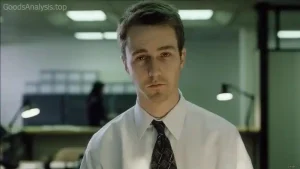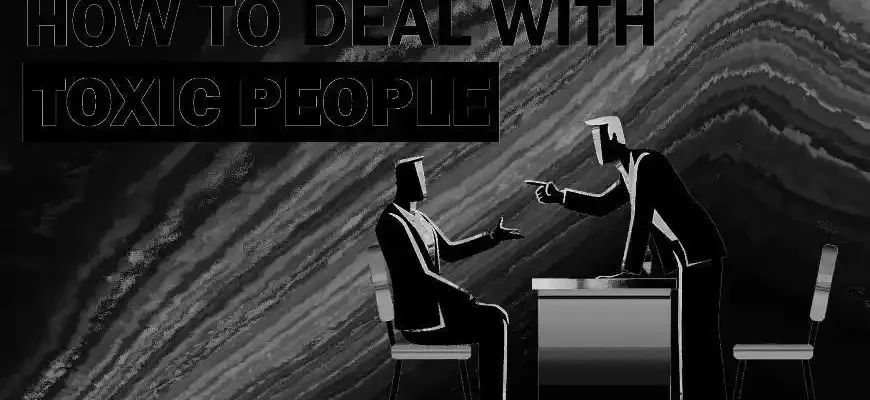Introduction
You’ve heard the term “toxic relationship” thrown around in conversations, but what does it really mean? The phrase gets used in everything from casual discussions to serious therapy sessions, but it’s crucial to understand exactly what a toxic relationship is and how to deal with it. Spoiler alert: it’s not about a partner leaving their socks on the floor every once in a while! Toxicity runs deeper, affecting mental health, self-esteem, and overall well-being. So, how can you navigate through this complex emotional maze? Let’s dig into it, and trust me—by the end of this, you’ll have a toolbox of advice to handle this situation like a pro.
What Is a Toxic Relationship?
In simple terms, a toxic relationship is one where the interactions between people bring out the worst in each other. It might involve behaviors like manipulation, emotional abuse, controlling tendencies, gaslighting, or constant negativity. These types of relationships, whether romantic, familial, or even friendships, can drain your energy, erode your self-worth, and leave you feeling isolated and miserable.
To make matters worse, toxicity often doesn’t appear overnight. It starts small—like subtle digs or boundary-pushing comments—but over time, it builds into a web of negativity. This slow-burn approach makes it harder to recognize, and even harder to break free from.
How Toxic Relationships Affect Your Health
If you’re dealing with a toxic relationship, you’re not just facing emotional strain—you’re also putting your physical health at risk. Studies have shown that chronic stress from toxic relationships can trigger a variety of health problems, from high blood pressure to weakened immune systems. According to research published in Psychosomatic Medicine (2016), the psychological toll of living in a toxic environment increases cortisol levels, which can lead to anxiety, depression, insomnia, and even cardiovascular diseases.
In other words, the emotional weight of a toxic relationship can actually start to show up on your doctor’s scale.
Signs You’re in a Toxic Relationship
Before you can fix the issue, it’s essential to know when you’re caught in a toxic dynamic. Look for these warning signs:
- Constant Criticism: Constructive criticism can be helpful. But when your partner (or friend or family member) criticizes you constantly—your actions, your personality, your looks—it can chip away at your confidence.
- Gaslighting: This is a term you’ve probably heard a lot lately. It’s when someone manipulates you into questioning your own reality. For example, they might deny things they’ve said or done, leaving you feeling confused and unstable.
- Emotional Manipulation: You may feel like you’re walking on eggshells, unsure what will set them off. Emotional blackmail, guilt-tripping, and playing the victim are common signs of manipulation.
- Lack of Respect for Boundaries: In healthy relationships, personal space and boundaries are respected. In toxic relationships, these boundaries are often violated, and when you speak up, you’re made to feel guilty for wanting your own space.
- Feeling Drained: After spending time with this person, you might feel emotionally, mentally, or physically drained. That’s a clear sign you’re being affected by the toxicity.
- Unresolved Conflict: Disagreements are part of any relationship, but in a toxic one, conflicts are never resolved. Instead, they linger, building resentment.
How to Deal With a Toxic Relationship
So, you recognize the signs. Now what? How do you deal with this difficult and potentially harmful situation?
1. Acknowledge the Problem
The first step is often the hardest: accepting that the relationship is toxic. You may want to brush it off, especially if you’ve been with someone for a long time, or if they’ve been part of your life for years. However, recognizing the problem is key to addressing it. Ask yourself: Is this relationship making me better or worse?
2. Communicate Honestly
Once you’ve recognized the toxic patterns, it’s time to communicate. Depending on the situation, this might be a simple conversation or a more serious discussion. Be clear about how their behavior is affecting you, but remember, you can’t control how they respond. They may become defensive or dismissive—common signs of someone not ready to face the truth.
If you find it too difficult to talk to the person directly, consider seeking help from a therapist who can guide the conversation. Professional intervention can make a world of difference.
3. Set Clear Boundaries
Boundaries are not negotiable. If someone repeatedly disrespects your boundaries, this is a major red flag. Be firm and clear about what is acceptable behavior and what isn’t. This is often a turning point in dealing with toxic relationships—either the other person will respect your boundaries, or they won’t.

4. Focus on Self-Care
When you’re stuck in a toxic relationship, self-care can feel like a luxury, not a necessity. But taking care of yourself is critical to maintaining your mental and physical health. Take time each day to do something that nourishes your mind, body, and soul. Whether that’s exercising, reading, journaling, or simply spending time with supportive friends, make self-care a priority.
5. Seek Professional Help
If you find it difficult to break free or recognize that the toxic relationship is significantly impacting your well-being, don’t hesitate to reach out for professional help. Therapists, counselors, and support groups can provide valuable tools and strategies to help you cope with the emotional fallout. Cognitive Behavioral Therapy (CBT), in particular, has been shown to be effective in helping people understand and change negative patterns of thinking and behavior that perpetuate toxic relationships.
6. Know When to Walk Away
Sometimes, the most empowering thing you can do is walk away. If you’ve tried everything—communicating, setting boundaries, self-care—and the toxicity continues to affect your life negatively, it may be time to let go. Ending a toxic relationship, especially one that’s deeply intertwined with your life, can be painful, but it can also be freeing. Remember, you deserve to be in a relationship that uplifts you, not one that drags you down.
The Importance of Support Systems
No one can handle a toxic relationship alone, and you shouldn’t have to. Surround yourself with friends, family, or even online communities who understand what you’re going through and offer non-judgmental support. Just knowing you’re not alone in this journey can make a huge difference.
Closing Thoughts: Finding Your Peace
Remember, you don’t owe anyone your mental and emotional peace. If a relationship is making you feel small, invisible, or anxious, it’s okay to remove yourself from that situation. Trust yourself, know your worth, and take the steps you need to protect your well-being.
If you’re feeling stuck, reach out for help. Therapy, friends, family, or even a support group can provide the encouragement and strategies you need to move forward. No one’s perfect, and no relationship is without flaws, but you should never settle for a dynamic that brings more harm than good.
What People Are Saying
1. Anna, 32, Canada
“I didn’t realize how toxic my relationship was until I started seeing a therapist. The first thing I learned was that it wasn’t my fault. Setting boundaries was a game-changer for me. It took time, but I’m finally learning how to stand up for myself.”
2. Raj, 45, India
“In my case, the emotional manipulation was so subtle that I didn’t see it until I reached a breaking point. I’m still healing, but recognizing the signs was the first step toward taking control of my life.”
3. Sarah, 58, UK
“After a 30-year marriage, I finally decided to leave. It wasn’t easy, but I knew I couldn’t continue sacrificing my happiness for the sake of ‘keeping the peace.’ Life has been brighter ever since.”
4. Alex, 27, USA
“I used to think that love meant putting up with everything. But after attending a support group, I realized that love should make you feel safe, respected, and valued. Now I’m learning to surround myself with people who lift me up.”
5. Maria, 39, Mexico
“The hardest part was admitting that I deserved better. It wasn’t until I leaned on friends and family that I realized how toxic my relationship had become. I’m now working on building my confidence and trust again.”
FAQs
Q: How do I know if my partner is emotionally abusive?
A: If your partner consistently belittles you, tries to control your actions, or makes you doubt your own perceptions and feelings, these could be signs of emotional abuse. It’s important to reach out for support to address these issues.
Q: Can a toxic relationship improve over time?
A: It’s possible, but only if both parties are willing to acknowledge the problem, seek therapy, and make a committed effort to change. If only one person is doing the work, it’s unlikely to improve.
Q: Should I tell my friends or family about the toxic relationship?
A: Yes, sharing with trusted friends or family can provide you with emotional support and perspective. They can help you see things from an outside point of view and offer guidance.
Toxic relationships don’t just hurt—they can redefine how you see yourself and your world. But they don’t have to be permanent. With the right tools, support, and mindset, you can take the steps needed to reclaim your peace and happiness.









